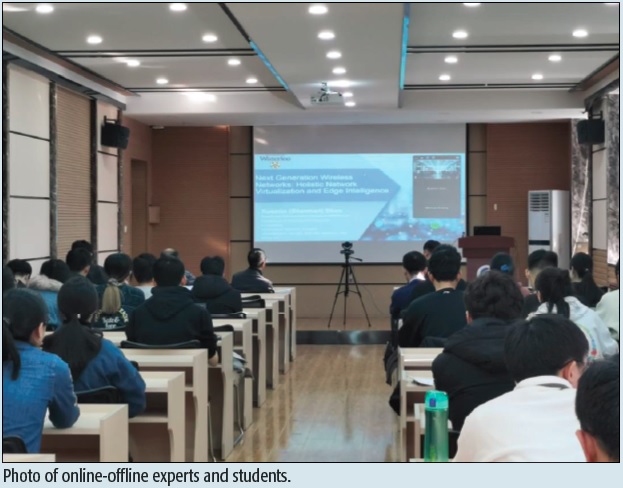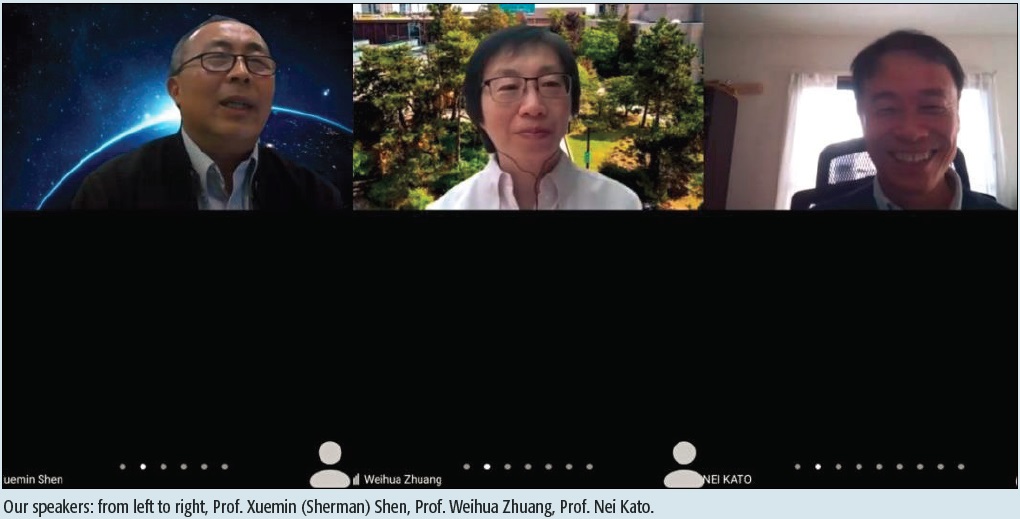
The IEEE ComSoc Harbin Chapter Changchun Branch held an Online Workshop on 25 November, 2020, called the International Workshop on 6G Wireless Intelligent Networks. Under the situation of the global epidemic, our branch had made adequate preparations for this academic event in advance. Professor Fengye Hu from Jilin University organized this activity.
According to different research fields, they invited well-known experts and scholars at home and abroad, and encouraged relevant members and student members to actively communicate with experts.
With the financial support of Jilin University, the following well known domestic and foreign scholars accepted the invitation of the IEEE ComSoc Harbin Chuangchun Branch and conducted academic exchanges online during November of 2020: Prof. Xuemin (Sherman) Shen (IEEE Fellow), Professor of the Canadian Academy of Engineering and the Royal Society of Canada; Professional Engineer of Ontario; Editor-in-Chief of IEEE Internet of Things Journal, University of Waterloo, Canada; Prof. Weihua Zhuang (IEEE Fellow), Professor of Royal Society of Canada (RSC), Canadian Academy of Engineering (CAE), and Engineering Institute of Canada (EIC), University of Waterloo, Canada; and Prof. Nei Kato (IEEE Fellow), professor of Tohoku University, a fellow of The Engineering Academy of Japan, Fellow of IEEE, and Fellow of IEICE, Japan.
The topic of Prof. Shen’s lecture was “Next Generation Wireless Networks: Holistic Network Virtualization and Edge Intelligence.” He put forward requirements for 6G wireless intelligent networks from three aspects: digital twin network and edge computing, next generation extended network architecture design, and AI driven network management. On this basis, it is concluded that NGN should have more intelligent and flexible resource allocation, scalable network architecture and automatic network management functions. Through network virtualization and edge intelligence, this presentation gives potential solutions to achieve the objective.
The topic of Prof. Weihua Zhuang’s lecture was “Channel Access Management for Cellular IoT Applications.” She proposed a novel two-hop energy efficient and resource preserving channel access solution, exploiting node clustering, data aggregation, and non-orthogonal multiple access (NOMA). The report focused on the management of channel access for cellular Internet of Things, including random channel access and its limitations, 2-hop non-orthogonal transmission strategies as well as related optimization algorithms. At the same time, the simulation results showed that the proposed channel access scheme can reduce the cost-effectiveness.
The topic of Prof. Nei Kato’s lecture was “Ten Challenges in Advancing Machine Learning Technologies toward 6G.” In the lecture, Prof. Kato introduced the 10 most critical challenges in advancing the intelligent 6G systems. It mainly included communication system, machine learning architecture and computational efficiency. Starting from the 5G network, the talk put forward the requirements of improving core network utilization and downlink load rate for 6G networks, and the objectives and standards of 6G service are summarized. The challenges above were analyzed from the perspectives of 6G service requirements, AI algorithm design, practical deployment, and future standardization.
The academic event organized by the IEEE ComSoc Harbin Chapter Changchun Branch attracted a large number of scholars and students who attended in the form of online-offline interaction. During the workshop, the experts gave lectures on advanced theoretical knowledge in a serious and vivid manner. They discussed actively and patiently answered various questions raised by members and students. Through this activity, we strengthened the links among the IEEE ComSoc Harbin Chapter, JLU, and universities at home and abroad in relevant areas such as 6G wireless intelligent network, channel access management, and 6G communication, which broadened our horizons and improved our research capabilities to a large extent.
